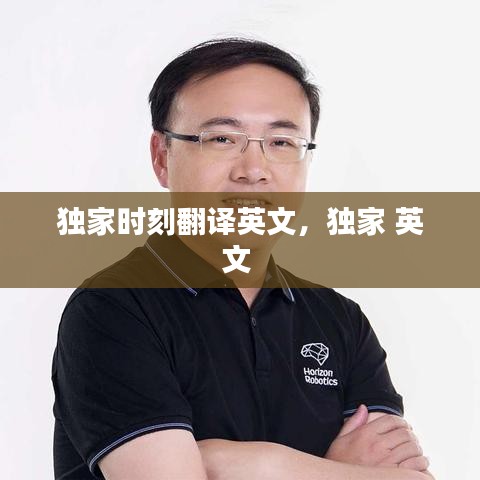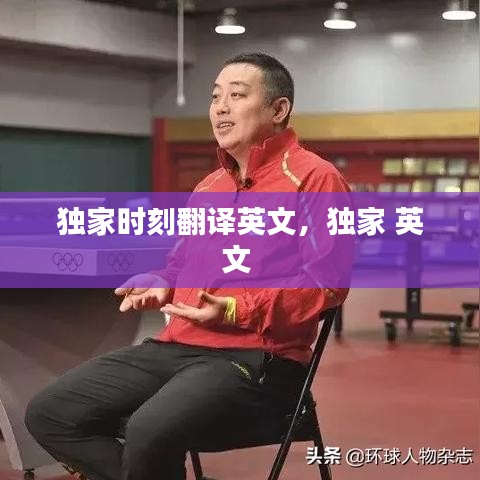Understanding the Concept of "Exclusive Moments" in Translation
Translation is an art form that goes beyond the mere conversion of words from one language to another. It involves capturing the essence, emotions, and nuances of the original text in a way that resonates with the target audience. One such concept that often poses a challenge to translators is "exclusive moments." These are instances where the original text conveys a unique, personal, or intimate experience that may not have a direct equivalent in the target language. In this article, we will explore the intricacies of translating "exclusive moments" and how to convey them effectively in English.
The Significance of Exclusive Moments
Exclusive moments are those fleeting instances in life that are special, memorable, and often private. They could be a heartfelt conversation with a loved one, a significant milestone in one's career, or a personal triumph that brings joy and pride. These moments are often the ones that define our lives and leave a lasting impact. In literature, film, and everyday communication, exclusive moments are crucial in building character, driving the plot, and evoking emotional responses from the audience.
Challenges in Translation
Translating exclusive moments can be challenging due to several factors:
Cultural Differences: What may be an exclusive moment in one culture might not hold the same significance in another. For example, a traditional family gathering in Japan might be considered an exclusive moment, while in the United States, it might be seen as a regular family event.
Language Nuances: Some languages have specific expressions or phrases that perfectly capture the essence of an exclusive moment, which may not have a direct translation in another language.
Emotional Resonance: The emotional impact of an exclusive moment is often deeply personal and may not be easily conveyed through words alone.
Strategies for Effective Translation
When translating exclusive moments, it is essential to adopt a strategic approach to ensure that the essence of the moment is preserved. Here are some strategies that can be employed:
Cultural Adaptation: Adapt the content to the cultural context of the target audience while maintaining the core message. This might involve using cultural references or idioms that resonate with the audience.
Descriptive Language: Use vivid and descriptive language to convey the emotions and atmosphere of the exclusive moment. This can help bridge the gap between the original and the translated text.
Contextual Clues: Provide enough context to help the reader understand the significance of the moment. This could be through background information or through the characters' thoughts and feelings.
Collaboration: Work closely with the original author or content creator to ensure that the translation captures the intended message and emotional impact.
Case Study: Translating a Personal Story
Let's consider a personal story from a Spanish-speaking individual about the first time they visited their grandparents' house in the countryside. The original Spanish text reads:
"Fue como volver a casa, después de años de estar en la ciudad. La vista de las montañas, el olor del pasto recién cortado, y la calidez de sus risas me transportaron a otro tiempo."
Translating this into English, one might consider the following:
"It was like coming home after years of being in the city. The sight of the mountains, the scent of freshly cut grass, and the warmth of their laughter transported me to another time."
In this translation, the use of vivid language and descriptive phrases helps to convey the emotional essence of the exclusive moment, even though the specific cultural nuances may not be directly translatable.
The Role of the Translator
Translators play a crucial role in ensuring that exclusive moments are effectively communicated across languages and cultures. By understanding the complexities of language, culture, and emotion, translators can bridge the gap and create a connection between the original and the translated text. This requires not only linguistic skills but also a deep sense of empathy and an ability to think creatively.
Conclusion
Exclusive moments are the building blocks of our lives and the stories we tell. Translating these moments requires a delicate balance of linguistic prowess, cultural sensitivity, and emotional insight. By adopting strategic approaches
转载请注明来自北京放生,本文标题:《独家时刻翻译英文,独家 英文 》















 京ICP备2021028395号-1
京ICP备2021028395号-1
还没有评论,来说两句吧...